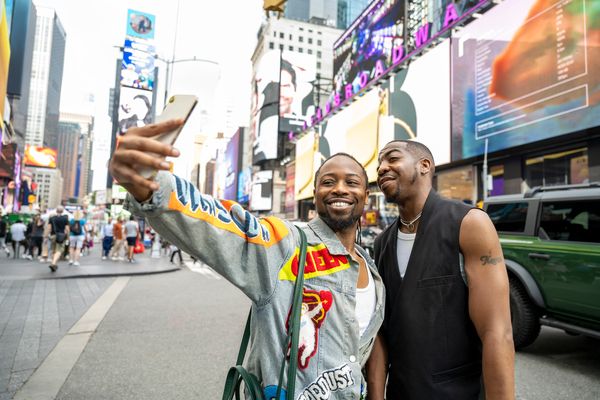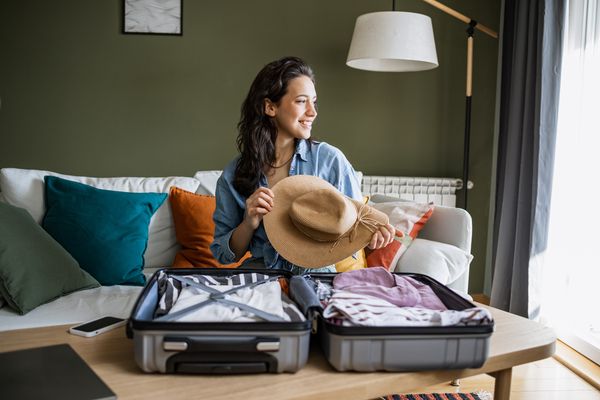Despite the popularity of the ride-sharing app Uber, customers have a visceral, negative reaction to its surge pricing policies that kick in during peak demand periods. Rides that would normally cost just a few dollars suddenly become exponentially more expensive, sometimes increasing up to hundreds of dollars, as fares soar in response to an increased number of passengers looking for a ride.
The restaurant industry may be about to embark on a similar course, and the vitriol that is hurled at Uber for raising prices when its service is needed most may also heap scorn on restaurants that only make tables available at the last minute for customers able to pay for the privilege.
A surge of interest
Online reservation service OpenTable says it is experimenting with its own form of surge pricing that it calls "premium reservation," and if successful will roll it out to more venues.
OpenTable, which was acquired by Priceline.com (PCLN 1.32%) last year for $2.6 billion, says it will be testing its new reservation policy at the high-end Mexican restaurant Cosme located in the Flatiron district of New York. On Friday and Saturday evenings, the high-end restaurant will set aside a few extra tables for people making last-minute reservations.

When a simple tortilla dish can cost $20 or more, OpenTable thinks restaurant customers won't mind shelling out to get a reservation at high-end Mexican chain Cosme. Photo: Cosme.
Considering reservations are usually fully booked a month in advance or more, this could be an opportunity for customers to eat at one of the city's hottest restaurants at a moment's notice. Not surprisingly though, you'll have to pay for the privilege.
Pay up to sit down
OpenTable is typically free for patrons booking a reservation, but a Premium Reservation for two will cost you $50 while one for a party of four will run $100. The reservation service says their research revealed diners are willing to pay to get those last-minute seats at the most popular restaurants.
Certainly, someone who can afford to plunk down $200 for a dinner for two that might otherwise cost you $20 at Chipotle -- and for no other reason than being seen at a hip, trendy restaurant -- likely won't mind paying extra to make sure they get a table there. As OpenTable suggests, they might even demand it. And with the entire premium paid going to the restaurant, there will be a big incentive for these restaurants to sign up and make tables available as it rolls out more broadly.

The simplicity of OpenTable's software, whether online or on your mobile device, has made its technology popular among restaurants and their customers. Image: OpenTable.
OpenTable makes money from restaurants by charging them the following:
- a one-time installation fee
- a monthly subscription fee
- a fee for each guest seated through online reservations
This past quarter Priceline reported the service produced "double-digit domestic diner growth" and generated revenues of $62 million, an increase from the $61 million it generated in the first quarter, which was up from the $53 million OpenTable made in the yea-ago first quarter.
So the more restaurants it attracts by promising they can make money for simply taking a last-minute reservation could generate more business for it.
The customer is not always right
But as the concept becomes more ubiquitous, it could create a backlash against the restaurants, just as when Uber hikes prices during rush hour.
Customers may complain about the exclusionary nature of having to pay for a reservation and it might grow to such an extent that politicians will want to regulate it. After all, one New York assemblyman has already introduced a bill that would ban surge pricing.
While there shouldn't be any backlash from customers, especially since the diner knows upfront he's paying extra for the privilege and has the option to decline, that hasn't stopped Uber customers from complaining despite similarly having the opportunity to decline paying the higher price before sending for a car. What it boils down to is a case of buyer's remorse.
Yet pricing conveys information about the value of a product or service and also helps allocate scarce resources. It's simple supply and demand, and if prices aren't allowed to rise in response to demand there will soon be a shortage of that item. Just look at what happens when a hurricane approaches and anti-price gouging policies go into effect: There's a run on stores that leaves shelves barren regardless of whether it's gas, plywood, or basics like milk and eggs.
Uber's surge pricing ensures there are a sufficient number of drivers for the amount of passengers demanding them because the opportunity to earn more during peak hours attracts more drivers. As more cars become available surge pricing levels off then vanishes creating an equilibrium that government edicts can't match.
Of course, OpenTable's Premium Reservation is slightly different in practice (no one needs that pricey tortilla dish), and making a restaurant reservation doesn't carry the same public policy weight that essential goods and services do during an emergency. The concept is the same, though, and charging more for a scarce resource at a time it's in high demand could open up OpenTable and its restaurant customers to the same criticisms of gouging that typically plague Uber.






